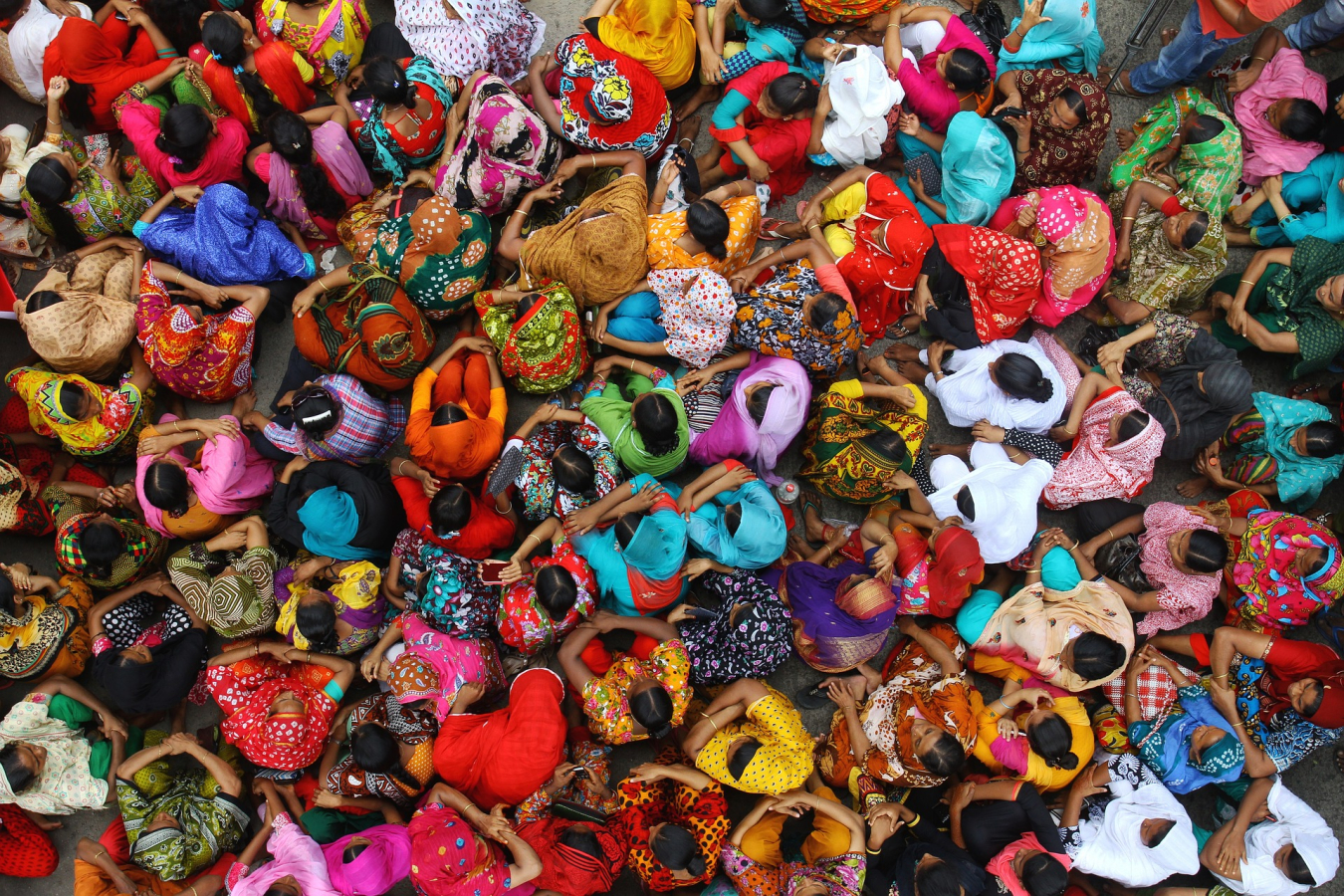Support migrant centric journalism today and donate

By Sanwar Ali:
In response to concerns over the democratic election process in Bangladesh, the United States has announced a new policy to restrict US visas for those who undermine elections in the South Asian nation. This article delves into the reasons behind these restrictions, the history of US-Bangladeshi relations, and the potential impact on Bangladesh's future. Additionally, we will explore Bangladesh's human rights record and provide a comprehensive analysis of the situation.
Table of Contents
- Reasons for US Visa Restrictions
- A Brief History of US-Bangladeshi Relations
- Role of Foreign Powers in Bangladesh's War of Independence
- Potential Impact of US Visa Restrictions on Bangladesh
- Human Rights Situation in Bangladesh
- Bangladesh's Response to the Restrictions
- US Visa Types Affected by the Restrictions
- International Observers and the Electoral Process
- Bangladesh's Political Landscape
- Conclusion
1. Reasons for US Visa Restrictions
The primary reason for the US visa restrictions is the alleged undermining of the democratic election process in Bangladesh. Accusations of vote rigging, targeting political opposition, and unlawful practices have marred elections in the country, particularly in 2014 and 2018. The US policy aims to support "free, fair, and peaceful national elections" by targeting individuals responsible for or complicit in undermining the electoral process, including current or former officials, politicians, law enforcement officers, and members of the judiciary and security services.
2. A Brief History of US-Bangladeshi Relations
US-Bangladeshi relations have evolved since Bangladesh's independence in 1971. The US initially supported Pakistan during the Bangladesh Liberation War but eventually recognized Bangladesh's independence in April 1972. Since then, the US has provided significant economic and humanitarian assistance to Bangladesh, focusing on areas such as health, education, and disaster relief. In recent years, the two countries have also collaborated on counterterrorism and security initiatives. However, the US has become increasingly concerned about the human rights situation and democratic processes in Bangladesh.
3. Role of Foreign Powers in Bangladesh's War of Independence
During the Bangladesh Liberation War in 1971, the United States and China supported Pakistan, while India and the Soviet Union backed the East Pakistani separatist movement. The US provided military and economic aid to Pakistan, while India trained and armed the Bengali Mukti Bahini guerrilla forces. The Soviet Union offered diplomatic and military support to India, including vetoing UN Security Council resolutions that sought to intervene in the conflict. Ultimately, the intervention of India and the Soviet Union played a crucial role in East Pakistan's victory and the establishment of Bangladesh.
4. Potential Impact of US Visa Restrictions on Bangladesh
- Economic and Social Impact: A decrease in the number of Bangladeshis receiving US visas could adversely affect remittances sent back to the country, potentially impacting the economy and the livelihoods of the families relying on these funds.
- Political Impact: The restrictions could put pressure on the Bangladeshi government to improve its election process and human rights record to avoid further international scrutiny.
- Diplomatic Impact: The visa restrictions could strain US-Bangladeshi relations, potentially pushing Bangladesh closer to other regional powers, such as China and India.
5. Human Rights Situation in Bangladesh
Bangladesh has faced criticism for its human rights record, with concerns ranging from extrajudicial killings and enforced disappearances to press freedom and political repression. The government has been accused of suppressing dissent and jailing critics, including opposition party supporters. Additionally, the controversial Digital Security Act has been seen as a tool to curb online dissent and stifle free speech.
6. Bangladesh's Response to the Restrictions
In response to the US visa restrictions, the Bangladeshi government has made assurances that it will take necessary measures to prevent and address any unlawful practices or interference in the electoral process. The government also stated that the electoral process would remain under strict vigilance, including international observers accredited by the Election Commission. Prime Minister Sheikh Hasina has promised a free and fair election, emphasizing the importance of people's power in choosing their government.
7. US Visa Types Affected by the Restrictions
- Green Card: A green card allows immigrants to live and work permanently in the United States.
- Work Visa: Work visas, such as the H1B visa or L1 visa, enable foreign nationals to work in the US for a specific period.
- B1 and B2 Visas: B1 visas are for business visitors, while B2 visas are for tourists and visitors for medical treatment.
- E2 Visa: The E2 visa is for investors who make a significant investment in a US business.
- Visitor Visa: Visitor visas, such as the B1 and B2 visas, allow temporary entry to the US for business, tourism, or medical purposes.
8. International Observers and the Electoral Process
International observers play a critical role in ensuring free, fair, and transparent elections. By monitoring the electoral process and reporting any irregularities, these observers can help enhance the credibility of elections and promote democratic norms. In the case of Bangladesh, the government has invited international observers to be accredited by the Election Commission, signaling a willingness to subject its electoral process to external scrutiny.
9. Bangladesh's Political Landscape
The political landscape in Bangladesh is characterized by deep polarization between the ruling Awami League, led by Prime Minister Sheikh Hasina, and the opposition Bangladesh Nationalist Party (BNP), led by former Prime Minister Khaleda Zia. The BNP has been calling for Hasina to step down and for the next election to be held under a neutral caretaker government, a demand the government has rejected. The US visa restrictions could potentially influence the dynamics of the political landscape in Bangladesh.
10. Conclusion
The US visa restrictions targeting individuals who undermine democratic elections in Bangladesh reflect growing concerns about the country's electoral process and human rights record. The potential impact of these restrictions on Bangladesh's economy, politics, and international relations remains to be seen. It is crucial for the Bangladeshi government to address these concerns and work towards ensuring free, fair, and transparent elections to maintain its international standing and foster a democratic and inclusive society.
Workpermit.com can help with US employment-based visas
If you would like to apply for a US work visa – including L1 visas, E2 visas, O1 visas and H1B visas - Workpermit.com can help.
Workpermit.com is a specialist visa services firm with over thirty years of experience dealing with visa applications. We can help with a wide range of visa applications to your country of choice. Contact us for further details. You can also telephone 0344 991 9222.





















